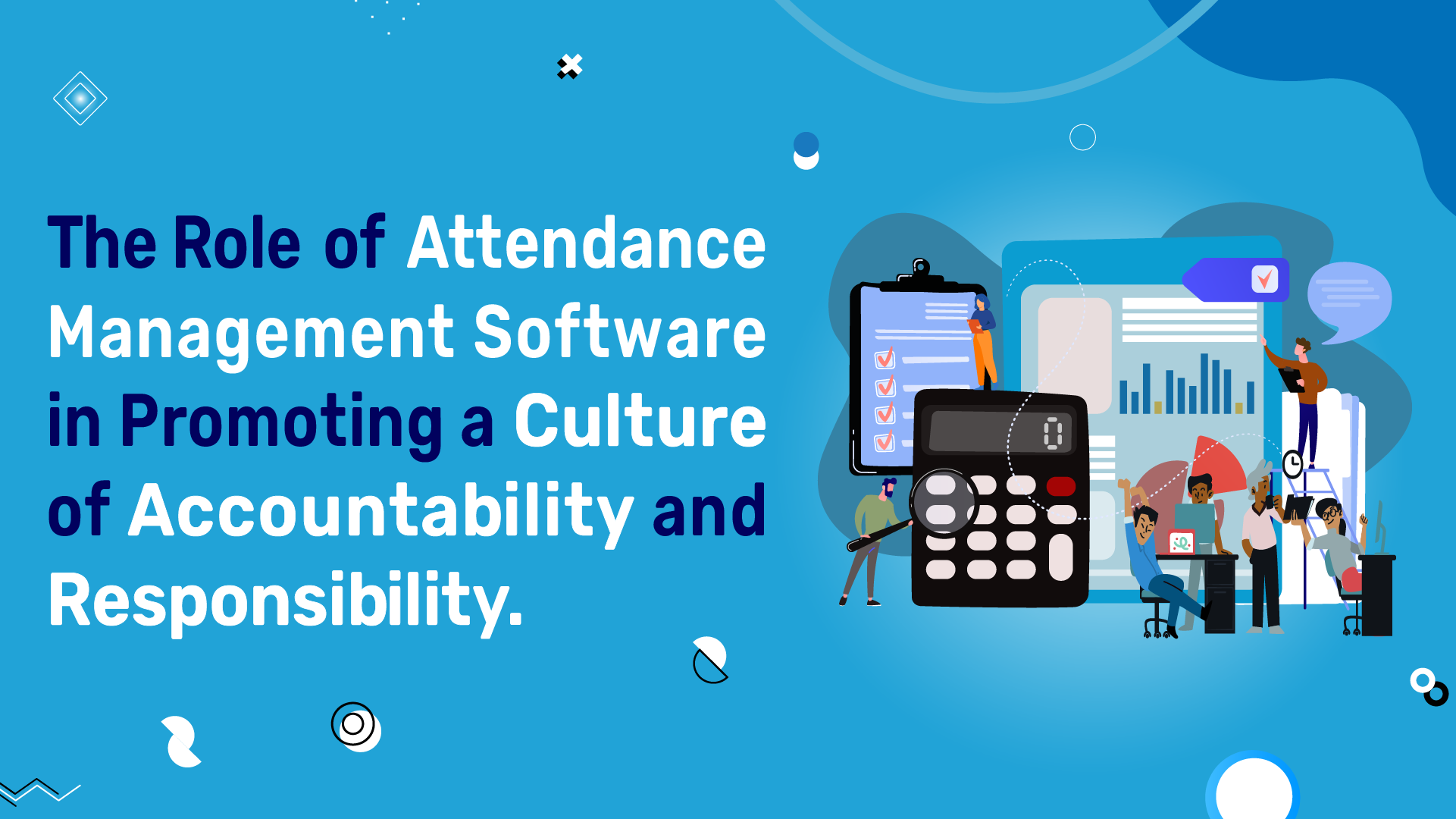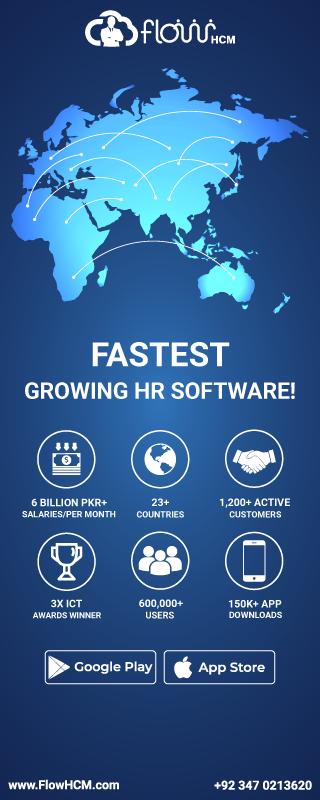Attendance management software plays a pivotal role in fostering a culture of accountability and responsibility within the workplace. By automating and streamlining attendance tracking processes, this software not only simplifies administrative tasks but also promotes transparency and efficiency in managing employee attendance.
Traditionally, manual attendance tracking methods, such as paper-based systems or spreadsheets, have been prone to errors, time-consuming to maintain, and lacked real-time insights. However, with the advent of attendance management software, organizations now have a powerful tool to ensure accurate attendance records while instilling a sense of accountability and responsibility among employees. This culture of accountability and responsibility is crucial for the organization’s performance and growth.
The Foundation of Accountability and Responsibility
In the context of the workplace, accountability refers to the willingness and commitment of individuals to take ownership of their actions, decisions, and outcomes. It involves assuming responsibility for one’s tasks, meeting deadlines, and being answerable for the results achieved. Accountability empowers employees to deliver their best work, honor their commitments, and contribute to the overall success of the organization.
Responsibility, on the other hand, is closely linked to accountability and refers to the duty and obligation individuals have to fulfill their assigned roles and responsibilities. It encompasses reliability, punctuality, and being proactive in managing one’s work tasks and obligations. Taking responsibility means acknowledging the impact of one’s actions on team members, clients, and the organization as a whole.
Both accountability and responsibility are crucial for a productive work culture. When employees are accountable, they take ownership of their work, are more likely to meet deadlines and strive for excellence. Responsibility ensures that individuals understand their roles and fulfill their obligations, fostering trust, collaboration, and a positive work environment.
By leveraging attendance management software, organizations can establish a framework that promotes accountability and responsibility. The software automates attendance tracking, provides real-time visibility into attendance data, and facilitates transparent communication regarding attendance policies and expectations. These features empower employees to take responsibility for their attendance, plan their time effectively, and contribute to a culture of accountability and responsibility.
The Limitations of Manual Attendance Tracking
Manual attendance tracking methods, although widely used in the past, come with several limitations that hinder the promotion of accountability and responsibility in the workplace.
One major challenge is the potential for errors and discrepancies. Relying on manual data entry leaves room for human mistakes, such as typos, incorrect calculations, or misplaced records. These errors can lead to inaccurate attendance records, which can cause misunderstandings, disputes, and difficulties in assessing employee performance.
Moreover, manual attendance tracking is a time-consuming process. HR personnel must manually collect, organize, and process attendance data, which diverts their time and attention from more strategic HR initiatives. Additionally, manual methods often lack real-time updates, making it difficult to have an up-to-date view of employee attendance at any given moment.
How Attendance Management Software Promotes Accountability
i. Accurate and Transparent Attendance Tracking
Attendance management software addresses the limitations of manual methods by ensuring accurate recording of employee attendance. It leverages technologies such as biometric time clocks or integration with access control systems to capture attendance data automatically. This automation significantly reduces the chances of errors or manipulation that can occur with manual processes.
Furthermore, attendance management software provides real-time tracking of attendance. HR personnel and managers can access up-to-date attendance records, instantly identify any discrepancies, and take timely action. This transparency fosters a culture of accountability as employees are aware that their attendance is being accurately monitored.
ii. Clear Attendance Policies and Expectations
Attendance management software allows organizations to establish and communicate clear attendance policies. Through the software, attendance rules, regulations, and expectations can be defined and shared with employees. Automated notifications and reminders can be set up to inform employees about attendance requirements, such as punctuality, shift schedules, or time-off requests.
By having well-defined policies communicated through the software, employees are aware of the attendance standards expected from them. This clarity reduces ambiguity and excuses related to attendance, promoting a sense of responsibility among employees.
iii. Empowering Employees with Self-Service Features
Attendance management software empowers employees through self-service features. Employees can access their attendance records, view their schedules, and request time off through intuitive self-service portals. This enables employees to take responsibility for managing their own attendance and making necessary adjustments in a convenient and transparent manner.
Self-service features also promote transparency and open communication. Employees can review their attendance records, ensuring accuracy and addressing any discrepancies promptly. They have the ability to proactively manage their time and attendance, contributing to a culture of accountability and responsibility.
By leveraging the accuracy, transparency, and self-service features of attendance management software, organizations can foster a culture where employees take ownership of their attendance, adhere to established policies, and actively contribute to a responsible work environment. In the next section of this blog, we will explore additional strategies and benefits of using attendance management software to promote accountability and responsibility in the workplace.
The Link between Attendance Management and Responsibility
Attendance management software not only promotes accountability but also establishes a strong link with responsibility in the workplace. Here are some key aspects that highlight this connection:
i. Timely Reporting and Communication
Attendance management software facilitates timely reporting of absences or tardiness. Employees can use the software to notify their supervisors or HR personnel about any planned or unplanned absences. This streamlined reporting process ensures that the organization is promptly informed and can take necessary actions, such as arranging for backup coverage or adjusting work schedules.
Moreover, attendance management software supports open communication channels. It allows for easy communication between employees and managers regarding attendance-related matters. Whether it’s requesting schedule modifications or providing explanations for absences, the software enables transparent and efficient communication, fostering responsible attendance management.
ii. Encouraging Proactive Time Management
Attendance management software encourages employees to prioritize their time and plan their schedules efficiently. By providing features such as time-off requests and shift swapping, the software empowers employees to take responsibility for managing their time effectively.
Employees can proactively request time off through the software, ensuring proper planning and minimizing disruptions to team productivity. Additionally, features like shift swapping enable employees to coordinate schedule changes among themselves, promoting teamwork, and accountability. This encourages employees to be proactive in managing their time and responsibilities, resulting in a more responsible work environment.
iii. Performance and Accountability Alignment
Attendance management software can be integrated with performance evaluation systems, further aligning attendance with accountability and responsibility. By linking attendance data with performance metrics, organizations can assess employees’ attendance records as part of their overall performance evaluation.
This integration reinforces the importance of attendance as a factor in measuring employee commitment and reliability. It establishes a direct link between responsible attendance management and individual accountability for meeting performance expectations. Employees are motivated to maintain good attendance records, knowing that it contributes to their overall performance and professional growth.
By establishing clear reporting mechanisms, encouraging proactive time management, and aligning attendance with performance evaluation, attendance management software reinforces the connection between responsibility and accountability in the workplace. It creates a framework where responsible attendance practices are recognized, valued, and integral to individual and organizational success.
Promoting a Culture of Accountability and Responsibility with FlowHCM
FlowHCM, the HR software solution developed by Impetus Systems, plays a crucial role in promoting a culture of accountability and responsibility within organizations. With its comprehensive range of modules and user-friendly interface, FlowHCM empowers organizations to foster a sense of ownership and responsibility among employees.
By leveraging FlowHCM, organizations can establish clear expectations and policies regarding attendance, performance, and overall responsibilities. The software provides timely reporting and communication channels, enabling employees to take ownership of their actions and decisions. Through features such as self-service portals and automated alerts, employees are empowered to manage their attendance, time, and tasks efficiently.
FlowHCM’s advanced Time & Attendance Management module ensures accurate and real-time tracking of employee attendance. With mobile accessibility and geo-fencing capabilities, employees can easily track their time and attendance, promoting a sense of responsibility and punctuality.
Moreover, FlowHCM facilitates streamlined performance management, leave management, payroll management, and other essential HR processes. These modules further reinforce accountability and responsibility by providing clear guidelines, automated workflows, and comprehensive reporting capabilities.
With FlowHCM, organizations can create a work environment where employees understand their roles, actively contribute to the organization’s success, and take ownership of their actions. By promoting accountability and responsibility, FlowHCM helps organizations enhance productivity, foster a positive work culture, and achieve their strategic objectives.
Conclusion:
The implementation of Attendance Management Software, such as FlowHCM, can significantly contribute to the development of a culture centered around accountability and responsibility within organizations. This comprehensive set of modules and features will streamline attendance tracking, promote transparent communication, and empower employees to take ownership of their actions. By leveraging these advanced capabilities, organizations can establish clear expectations, automate attendance processes, and foster proactive time management. Through the integration of performance evaluation and other HR processes, FlowHCM reinforces the link between responsibility and accountability, ultimately driving a positive work culture.








